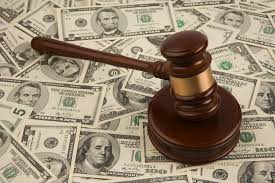Reading this article will teach you what options you have to collect on a Florida Final Judgment
As a Miami debt collection lawyer, I get this question all the time. You went after the bad guys in Court and won. A Florida judgment is now in hand. What do you do with this piece of paper? How do you get paid? This introductory article and the first in a series of articles for how to collect a Florida judgment will give you an overview for the options available to you.
What is a Florida Final Judgment?
A final judgment is a finding from the Court as a matter of law that you are owed compensation from another party for your legal claim. The final judgment will itemize the amount owed and from whom it is owed. Until paid, a final judgment will accrue interest at a rate established by law. A final judgment does not on its own force the liable party to pay you. The final judgment does not instruct you how to collect. The Court, the Judge and the Clerks cannot and will not give you legal advice for Florida judgment enforcement.
Enforcement of Florida Final Judgments
A Florida judgment may be enforced against the personal property or real property of the judgment debtor. Personal property includes monies in bank accounts; wages for employment; and any material possessions that the judgment debtor owns such as automobiles, collectibles, electronics, furniture, household goods, supplies, tools and other vehicles. Real property includes condominiums, homes and vacant land. There are different legal processes to follow depending upon how you intend to enforce the final judgment. No matter how you intend to enforce the final judgment, there are two steps you should take as soon as possible after getting the final judgment.
Record the Final Judgment
Every final judgment should be recorded separately in the county public records. Recording the final judgment in the public records is something that you need to do on your own as it is not done automatically by the Court. Recording the final judgment in the public records protects your lien rights as to any real property that the judgment debtor may own in the county. You are urged to record the final judgment in every county in which the debtor owns real property or resides.
File a Florida Judgment Lien
While recording your final judgment, you will also want to file a Florida Judgment Lien with the Florida Department of State. Filing a Florida Judgment Lien protects your lien interests as to the personal property of the judgment debtor. The first to file is first in priority when collecting upon the assets. For these reasons, a Florida Judgment Lien should be filed as soon as possible.
Florida Garnishment
Garnishment is the process in which monies from the judgment debtor are seized and set aside to pay an unpaid final judgment. Through the Court, you can request a Writ of Garnishment be served on entities or people believed to owe the judgment debtor monies. Typically, a Writ of Garnishment is served on a financial institution to which the judgment debtor has accounts. Additionally you can request a Continuing Writ of Garnishment to be that would be served on entities or people that employ the judgment debtor. While a Writ of Garnishment is a one-time event, a Continuing Writ of Garnishment requires that an employer set aside certain funds from the judgment debtor’s wages so long as he or she remains employed.
Florida Levy
Levy is the process in which the personal assets of the judgment debtor are seized by a Sheriff. When a Sheriff seizes the personal assets they are set aside to be sold at an auction to pay an unpaid final judgment. You do not get to seize and keep the Ferrari. Examples of personal assets sold at an auction include automobiles, collectibles, equipment, and furniture.
Act Fast
The lesson here is if you want to get paid you had better act fast and employ a multi-faceted plan of attack. Getting the final judgment is often the easy part. You made it this far, there is no need quit at this stage. Remember, the early bird gets the worm and the squeaky wheel gets the grease. When in doubt, you are urged to seek the assistance of a qualified Florida lawyer to help you collect your final judgment. Stay tuned for upcoming articles that will be dedicated to each of the stages for the Florida judgment enforcement process.
Related Topics: Florida judgment collection; Florida debt collection lawyer; Recording Florida Judgment; Florida Judgment Liens; Florida Garnishment; Florida Levy

